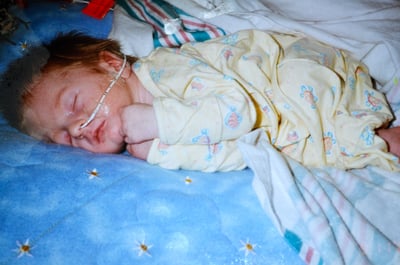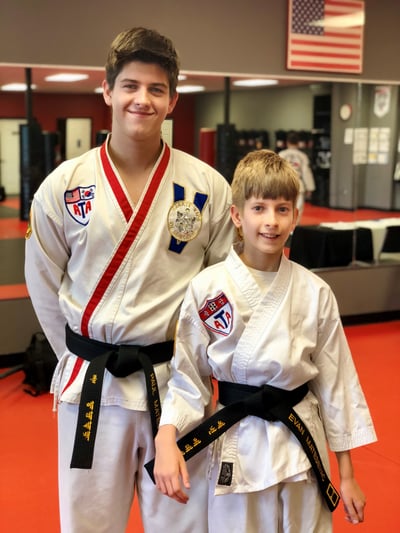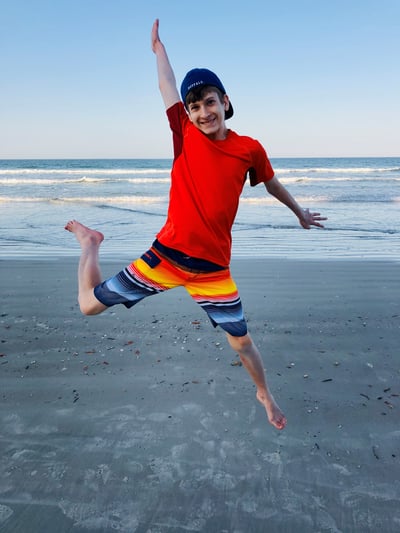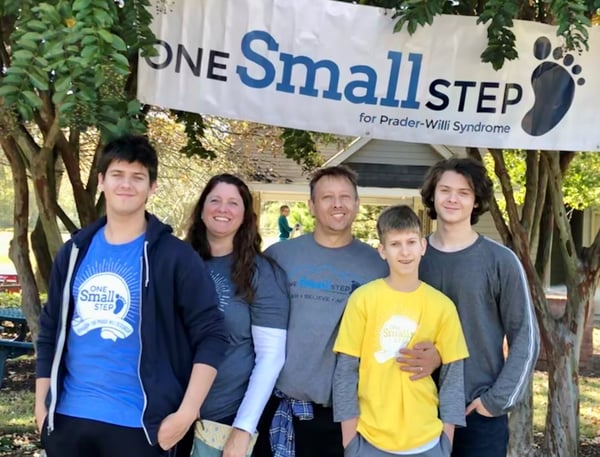A special contribution by guest blogger Lisa Matesevac
 Our youngest child, Evan, was born in 2006. Little did I know what big changes were coming in our lives. I knew we would be outnumbered with three children. I knew we would have sleepless nights. I knew we loved this child beyond measure without ever having seen him.
Our youngest child, Evan, was born in 2006. Little did I know what big changes were coming in our lives. I knew we would be outnumbered with three children. I knew we would have sleepless nights. I knew we loved this child beyond measure without ever having seen him.
The moment Evan was taken to the NICU, it felt like everything else I knew went up in smoke. At 3 weeks, we had a definitive diagnosis of PWS, which completely upended my way of thinking about his future. Immediately, my thoughts changed from the things he WOULD do to the things he WOULDN'T do.
There's a long list of things that I was sure would be impossible for Evan. Why is that so? I could argue that I'm naturally a pessimist or realist with a tinge of dread for what I assume will go badly. I could also argue that when we were told Evan had PWS, we were not given any hope.
Today, I want to dispel all the myths I created for Evan's future on the day PWS entered our lives:
 Myth 1: He will never be able to do the things his brothers do.
Myth 1: He will never be able to do the things his brothers do.
On this, and many other things, I was entirely wrong. Based on the bleak description we were given of the future living with PWS, I had no hope at first. But I found it — through our interactions with other PWS families, the inspiring research coming out of FPWR, and most importantly by watching Evan thrive and prove me wrong. He has accomplished many things, including earning a first-degree black belt in Taekwondo. He loves science and has earned awards for being a fantastic student. He enjoys sports and is always looking for activities to join and loves to socialize with other kids. He is always willing to try new and challenging things, just like his brothers.
Myth 2: We will never be able to do normal things as a family.
Not true.
Life as I knew it before Evan continued, sometimes with a modification, like bringing an extra cooler for his growth hormone or a packed meal so we had something healthy for him to eat. But we have not stopped doing the things we love like taking family vacations, going on hikes, making crafts, making family movies, and playing games as a family.
Myth 3: People will find it hard to love Evan.
Also, VERY wrong.
Evan enjoys entertaining people, especially younger kids. He likes to make others proud of him and works hard for praise. He is social and friendly and prefers to be with others talking and playing. He is genuinely kind, and for all these reasons, I know he is loved by many: teachers, family, therapists, instructors, and friends.
 Myth 4: Evan will not be happy.
Myth 4: Evan will not be happy.
I thought if things were harder for him, he would always be sad. For someone who I thought was supposed to be so sad, he sure does smile a lot! He shows me every day that he finds happiness around him in the small things, like when he wins a game, or in the big things, like being inducted into Beta Club for his excellent grades. His joys have taught me to restructure my definition of happiness, love, and normal.
I am so thankful to have been wrong all those many years ago. One thing I never anticipated was how I would cherish all of the new experiences that come with having a child with PWS. We have a community of families like ours who are supportive of one another, friends I would never have encountered in this lifetime if not for PWS.
We fundraise to support PWS research because we want to be part of the driving force in the discovery of new treatments. By far, the most exciting part of living the PWS life is that we have CLINICAL TRIALS. Did I just shout that? YES! I dreamed of this possibility, and now we participate in trials for treatments that could change the lives of everyone with PWS.
I do not know what our story will be in another 14 years, but I know I will never again doubt that Evan will experience successes, because he creates happiness and is fiercely loved.
A huge thank you to the Matesevac family for all that they do for FPWR. If you would like to support their fundraising efforts, please visit the Matesevac family's One Small Step page here.








